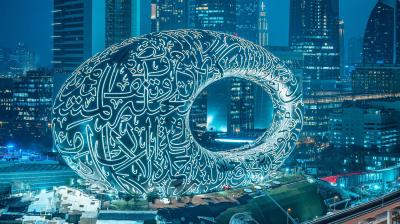Dubai will host the first Gulf Summit titled "No Despair" at the Museum of the Future on October 18, where regional and international experts will discuss the natural biological process that will affect all women around the world. The agenda is designed entirely to educate both medical professionals and members of the community alike. The agenda will bring together specialists from clinical physicians, healthcare practitioners, legal and human resources experts, and fitness professionals. Entrepreneurs, coordinators, and activists will present the latest data and information to help attendees understand the pre-menopause stage and during it.
As the world gradually moves towards unveiling this critical phase in women's lives that has been previously ignored amid feelings of shame, discussions, question-and-answer sessions, and networking opportunities will allow women to meet leading figures in their fields. According to the World Health Organization (WHO), 470 million women worldwide are currently undergoing menopause, with 25% of them experiencing severe symptoms that significantly affect their daily lives.
There is no better place than the United Arab Emirates to launch this pioneering event, as the country has become a regional leader in addressing this issue, having hosted events such as “Expo 2020 Dubai,” which included a discussion led by the United Nations Population Fund on the subject. In Abu Dhabi, a dedicated clinic has been opened for women undergoing menopause—translated in Arabic as "سنّ اليأس"—amid the cultural changes the country is experiencing.
Sharon James, a women's health coach and menopause specialist, and co-founder of the summit, said, "It’s time to break this barrier. For many years, women have silently endured this phase, and finally, the situation is changing. This issue is not limited to the Middle East or Gulf countries; it is a problem faced by women worldwide, and we hope that as we talk about it, women feel that someone is listening to their complaints and cares about them. Many women struggle to live their normal lives during this phase, which is associated with insomnia and symptoms that can last a lifetime, leaving them feeling the need for support. We believe this summit represents the beginning of this change."
Given that women handle this transitional phase differently, it may affect women in their thirties, even though the average age is 51 years. The end of the reproductive phase of a woman's life can present psychological challenges as much as physical ones. A recent survey of 254 physicians in the Middle East revealed that only 28.8% were able to identify the diagnostic criteria for menopause. Only 43% claimed to have received only incidental training on menopause, while 19% acknowledged having received no training at all. Meanwhile, 66.2% agreed that training is critically important.
Sophie Smith, founder of "Nabta Health," a women’s health company and co-founder of the summit, stated, "80% of women around the world feel unprepared for the physical and emotional changes that accompany menopause. Since the average woman spends more than a third of her life in post-menopause, it is essential to address the feelings of shame surrounding this natural transitional phase and provide adequate awareness and support."




